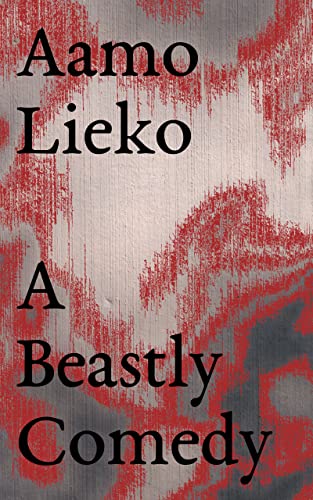 “A poetic journey through contemporary mindscapes, A Beastly Comedy is a modern, independent sequel to Dante’s epic. From visions of despair to scientific pursuits and sensual pleasures, the story is a quest for morals and meaning in a world of doubt.
“A poetic journey through contemporary mindscapes, A Beastly Comedy is a modern, independent sequel to Dante’s epic. From visions of despair to scientific pursuits and sensual pleasures, the story is a quest for morals and meaning in a world of doubt.
“The modern day pilgrim is guided from ignorance to understanding by Dante, himself disillusioned to not have reached paradise, while images of hell torment and corrupt any seeker of wisdom who must ask when punishments deemed just are just another evil.
“By turns dark and ecstatic, visceral and romantic, the distinct parts of the poem – The Underworld, The Sea of Science, and The Mountain of Arts – chart the wide range of approaches used in seeking knowledge, purpose, and happiness. While suffering is common and numbness seems like salvation, the poem is a testament to human curiosity, resilience, and capacity for love.” —Amazon.com
A Beastly Comedy is envisioned as a modern sequel to Dante’s work. An epic poem in English, it imitates the structure of Dante’s original poem, comprised of 100 cantos composed in terza rima, resulting in 14,500 verses in modified iambic heptameter.


 “On page 39, the Inferno is directly mentioned: ‘It’s the meter,’ said Francis, ‘Iambic trimeter. Those really hideous parts of Inferno, for instance, Pier de Medicina with his nose hacked off and talking though a bloody slit in his windpipe–‘ ‘ I can think of worse than that,’ Charles said. ‘So can I. But that passage is lovely and it’s because of the terza rima. The music of it. The trimeter tolls through that speech of Klytemnestra’s like a bell.’
“On page 39, the Inferno is directly mentioned: ‘It’s the meter,’ said Francis, ‘Iambic trimeter. Those really hideous parts of Inferno, for instance, Pier de Medicina with his nose hacked off and talking though a bloody slit in his windpipe–‘ ‘ I can think of worse than that,’ Charles said. ‘So can I. But that passage is lovely and it’s because of the terza rima. The music of it. The trimeter tolls through that speech of Klytemnestra’s like a bell.’
